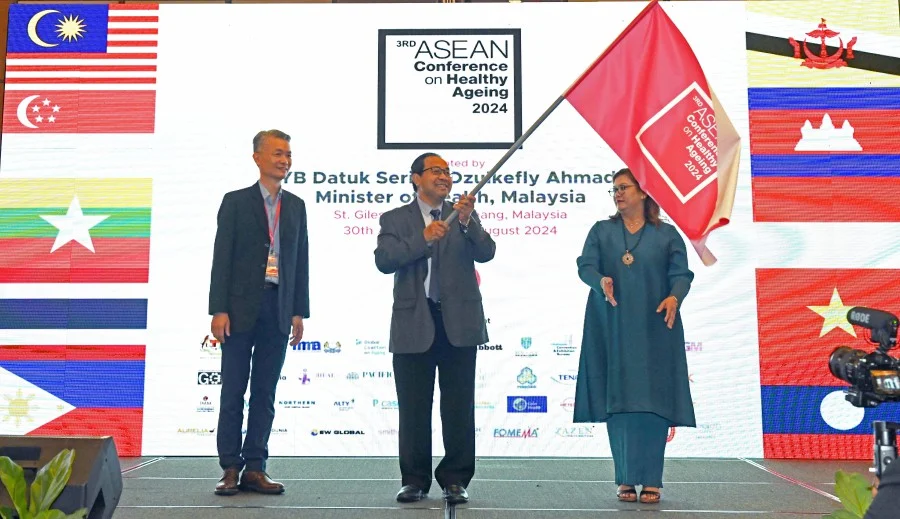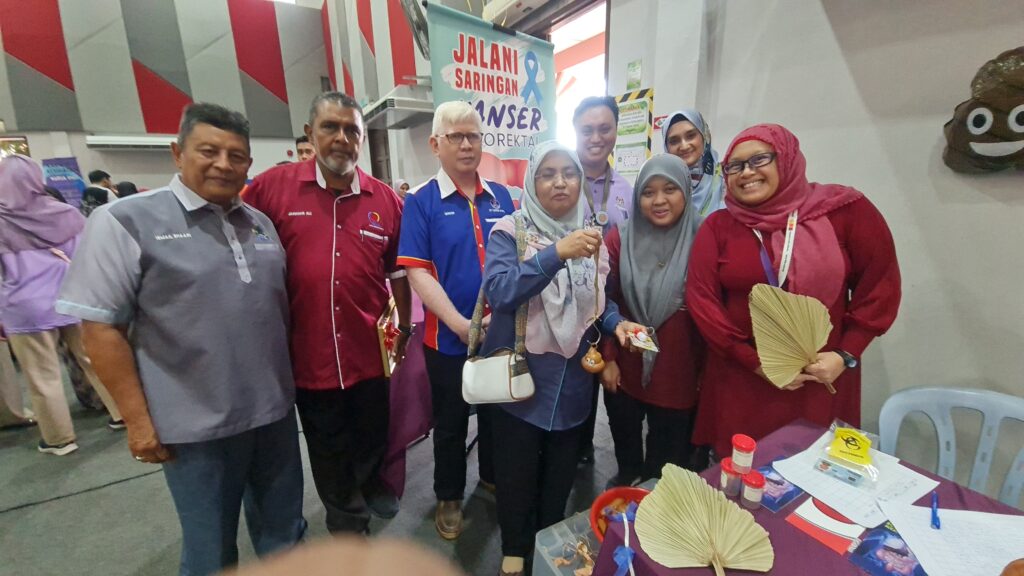ADULT HEALTH
Promote geriatric oncology clinic SIOG to optimize geriatric cancer treatment
2022-04-23 20:04
Medical words:
Cancer is a disease related to aging. Even if the elderly do not suffer from cancer, they may also face the attack of other chronic diseases as their organs age. Therefore, regardless of whether they have cancer or not, the quality of life is extremely important, and even more important. Knowing how to maintain health can prolong life.
“The majority of cancer patients worldwide are elderly, and this figure has increased over time. As we can see in Figure 1, the global population of 65 years or older will reach 1,548.9 million in 2050, which is 2019 From 260 million to 572.5 million in East and Southeast Asia, the number of people aged 65 or over has doubled in 2010. From this data, we can see that the global population is aging.
≧60-year-old cancer patients: male 73% female 64%
More data show that 32% of men aged 60 to 69 had cancer, 26% of men aged 70 to 79, and 15% of those aged 80 and over; 26% of women aged 60 to 69, and 22% of women aged 70 to 79. %, 16% are over 80 years old. We can see from the data that males aged 60 or over account for 73% of the total cancer cases, while females account for 64%.
Cancer is a disease related to aging. Even if the elderly do not suffer from cancer, they may face other diseases at the same time as our organs age, such as diabetes, kidney disease, heart disease, etc. Therefore, whether cancer patients or ordinary people, life Quality is extremely important.
Elderly cancer patients are heterogeneous (heterogeneous) or heterogeneous, here are two examples. Cancer patients of the same age, one is in good shape and the other is weak. Although the former suffers from cancer, but because there is no comorbidity, under the proper health care, the organ function aging slowly. Due to less medication, less physical burden, and longer life expectancy, survival is the primary concern.
Under treatment vs Overtreatment
Because the other has comorbidities and cancer, he has to take more medication, and naturally he will face the side effects of the medication. Under the unsatisfactory physical condition, let alone survival, he can only focus on the quality of life at the moment. improve. From these two examples, we can see that the two have completely different concerns.
Clinically, doctors divide cancer patients into two categories: under treatment and overtreatment. The undertreated group refers to the use of less-intensive cancer treatment for healthy elderly cancer patients, so that patients can obtain greater benefits from cancer treatment, or the use of non-treatment for elderly cancer patients without interfering with the gap of patients. Cancer Manipulative Intervention.
The overtreatment group refers to the treatment of cancer that may worsen the symptoms of the cancer patient, which is more likely to shorten the cancer patient’s original lifespan, or strengthen the body of the elderly cancer patient, and then implement lower-intensity cancer treatment to benefit the patient from the treatment.
Doctors cannot judge the vulnerability of patients with the naked eye alone, and more tests are needed to understand the physique of patients.
Lack of elder representation in clinical research
Geriatric oncology plays an important role in addressing older cancer patients, and now we are working together to improve cancer care for the elderly.
Unfortunately, there is a lack of data to confirm the treatment of elderly cancer patients. In the United States, 63% of cancer patients are 65 years and older, but only 25% of cancer subjects 65 years and older were enrolled in 164 clinical trials conducted by the Southwest Oncology Group (SWOG). In many cases, the elderly are unable to participate in research due to their physical condition, so that the results of these studies are not representative.
In current practice oncology assessment, we use Eastern Cooperative Oncology Group (ECOG) and Karnofsky Scale scores, but neither of these two methods can correctly predict functional disability in the elderly. Therefore, we use comprehensive geriatric assessment. (CGA) combination to evaluate:
Functional status: ECOG-PS, Activity of Daily Living (ADL), GUG test.
Cognitive status: Clock Drawing Test (CDT), Short Intelligence Test (MMSE).
Comorbidities: Charlson Comorbidity Index (CCI)
geriatric syndrome
Medication
Nutritional status (BMI, DNI)
Emotional Status (GDS)
The above combination is to more accurately assess the physical condition of cancer patients, so that cancer patients can complete the entire cancer course, whether it is targeted therapy, chemotherapy or radiotherapy.
Associate Professor Ravindran Kanesvaran,
Deputy Director and Senior Consultant, Department of Medical Oncology, National Cancer Centre, Singapore
SIOG strengthens geriatric oncologist capacity
The goal of the International Society of Geriatric Oncology (SIOG) is to strengthen the capabilities of medical professionals in the field of geriatric oncology to optimize the care of older cancer patients.
Founded in 2000, the Society is the leading international organization in the field of geriatric oncology. The Society has more than 1,900 members from 80 countries. Every year, everyone gathers to discuss and share about the latest research results and new innovative topics, and provides advanced courses around the world to educate oncologists to understand the day-to-day operations of the Society.
To meet the needs of older cancer patients, in 2021, the Society and the International Federation on Aging (IFA) will host a landmark global dialogue on the ageing population with cancer.
GO Clinic plans to go global
SIOG’s geriatric oncology clinics plan to go global and include:
USA & Canada
– Dedicated Geriatric Oncology Clinic in Academic Center
– Offers Training Fellowships
– Actively Promotes Research Programs
Europe
– Some countries have geriatric oncology programs
– Provides national guidelines
– Multinational research collaboration group
Latin America
-Brazil and Mexico with multidisciplinary geriatric oncology clinic
ASIA
– Dedicated geriatric oncology clinics in high-income Asian countries
– Robust database and research platform
– Begins advocacy for public policy in some parts of low- and middle-income countries
Oceania
-Australian Multidisciplinary Geriatric Oncology Clinic
-Australian Society of Clinical Oncology actively develops geriatric oncology program
50% of cancer deaths are in Asia
More than 50% of the global cancer morbidity and mortality occur in Asia, but only China, Singapore, Japan, Hong Kong, Malaysia, India, South Korea, the Philippines, and Israel offer consultation-based geriatric oncology (Geriatric Oncology, GO). ) clinic for research and data collection.
Now is the time for us to work together to improve cancer care for the elderly and make a difference from younger patients.
Standard care is difficult for living alone
In the past, family members would live together, but now most of them live separately, and the elderly can only live alone, especially in Western countries, even Singapore and Malaysia are no exception. Take me as an example, I practice medicine in Singapore, my father lives in Ipoh, and my sister lives in Kuala Lumpur. It is difficult to return to China during the MCO period in Malaysia. Even if my sister lives in Kuala Lumpur, she has to obtain travel documents to return to her hometown. Therefore, the elderly may have long-term Suffering from not getting standard care.
Geriatric assessments should remain standard of care, and during the pandemic, elderly patients could be assessed by telemedicine for remote screening, such as G8 or VES-13, in the current constrained setting.
Make good use of technology to complete remote screening
It is now possible to use technology products to complete remote screening, but for the elderly who are not good at operating technology, it is a great challenge. Remote screening not only saves time, but also eliminates the need for the elderly to go to the hospital and bear the risk of infection.
However, medical costs are a huge burden for the elderly, with most countries in Asia spending 5% to 10% of GDP on health care and the rest on education or otherwise. This is why it is extremely important to lobby the government and let the public understand the work of SIOG and raise public cancer awareness. Once the elderly develop cancer, if they get the right treatment immediately, it can reduce the financial burden of the elderly cancer patients.
Therefore, the public should also actively participate in relevant activities, and do not let the activities just be ’empty noises’. It is important to provide high-quality care for elderly cancer patients, so as to achieve a better balance between life and cancer. ”
**Warm reminder: The products, services and cases mentioned in the articles and advertisements are for reference only and cannot be used as the basis for seeing a doctor.
Published Originally in Sin Chew Jit Poh Read HERE






